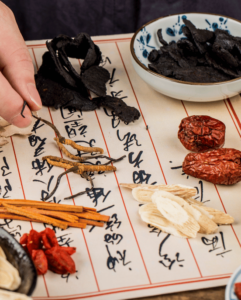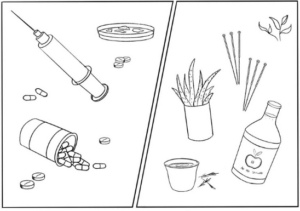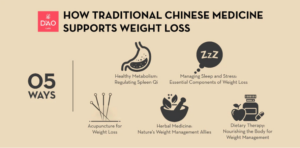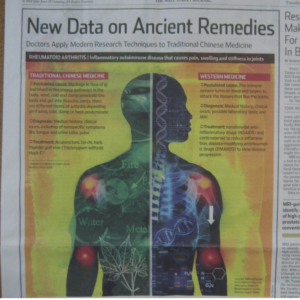In the modern world where stress, chronic conditions, and lifestyle challenges dominate the landscape, a lot of men are looking for health solutions that go beyond the standard method of treating symptoms in hopes of addressing the root causes of their issues. Traditional Chinese Medicine (TCM) offers a holistic approach that can complement or even be an alternative to modern allopathic medicine. With its focus on balance, harmony, and prevention, TCM provides tools for men to achieve better physical, mental, and emotional well-being. Let’s take a look and see what this ancient practice might be able to offer you.
Understanding Traditional Chinese Medicine
TCM is an ancient healthcare system rooted in over 2,000 years of Chinese history. It is built on the principles of balance, the interconnectedness of the body and mind, and the flow of vital energy, or qi (pronounced “chee”). Central to TCM is the idea that health results from harmony between yin and yang, two opposing but complementary forces, and the proper circulation of qi through the body’s meridians or energy channels.
Some key practices in TCM are:
- Acupuncture: Stimulating specific points on the body to improve qi flow and alleviate pain or illness.
- Herbal Medicine: Using plant, mineral, and sometimes animal-based ingredients to restore balance.
- Dietary Therapy: Tailoring food choices to an individual’s constitution and health needs.
- Tai Chi and Qi Gong: Gentle exercises that integrate movement, breathing, and meditation.
- Cupping and Moxibustion: Techniques to improve circulation and release toxins.
This more integrative and personalized approach makes TCM incredibly useful in addressing a wide range of health issues, particularly those where modern medicine may fall short.
Where Allopathic Medicine Falls Short
Modern allopathic medicine has made remarkable advances in treating acute conditions, infections, and life-threatening diseases. However, it often struggles in areas that require a more nuanced, holistic approach. Here are some common challenges:
- Focus on Symptoms: Allopathic medicine frequently targets symptoms rather than addressing underlying causes. For example, medications for stress-related issues like insomnia or anxiety may provide temporary relief but do little to resolve the root causes.
- Side Effects of Pharmaceuticals: Prescription medications often come with side effects that can lead to new health issues or dependencies, particularly for chronic conditions.
- Limited Chronic Disease Management: Conditions like arthritis, irritable bowel syndrome (IBS), or metabolic syndrome often require lifelong management with little or even no improvement in overall well-being.
- Lack of Preventative Care: While modern medicine emphasizes treating diseases after they occur, it often neglects prevention and the promotion of long-term health.

How TCM Fills the Gaps
TCM’s holistic approach focuses on preventing illness, restoring balance, and promoting one’s overall health. Here’s how it addresses areas where allopathic medicine falls short:
- Root Cause Treatment: TCM aims to identify and treat the root cause of health issues. For example, instead of simply prescribing a sleep aid for insomnia, a TCM practitioner may address underlying imbalances such as liver qi stagnation or a yin deficiency.
- Personalized Care: Unlike the one-size-fits-all approach often seen in modern medicine, TCM tailors treatments to the individual’s unique constitution, lifestyle, and environment.
- Chronic Condition Management: TCM offers a comprehensive way of managing chronic conditions by focusing on long-term health strategies, including dietary changes, herbal remedies, and stress management techniques.
- Prevention Through Lifestyle: TCM emphasizes prevention through balanced living, mindfulness, and regular health maintenance practices.

TCM’s Benefits for Men’s Health
Men face some unique health challenges today, including a higher predisposition to cardiovascular issues, prostate concerns, stress-related disorders, and sperm health problems. TCM offers specific benefits for these and other men’s health issues:
- Boosting Energy and Stamina: TCM focuses on improving qi flow to enhance energy levels and physical performance. Herbal remedies like ginseng are commonly used to support stamina and vitality.
- Reproductive Health: Conditions like erectile dysfunction, low sperm count, or hormonal imbalances can be addressed through acupuncture and herbal formulas that restore balance and improve circulation.
- Managing Stress and Mental Health: Practices like tai chi and qi gong, often combined with herbal therapies, can help men manage stress, anxiety, and depression. Acupuncture has also been shown to regulate stress hormones and promote relaxation.
- Chronic Pain Relief: Acupuncture is widely recognized as an effective treatment for chronic pain, including back pain, joint issues, and headaches, which are common concerns for men.
- Digestive Health: Many men suffer from digestive disorders linked to stress or poor dietary habits. TCM’s dietary therapy and herbal medicine can help restore gut health and improve digestion.
Scientific Evidence Supporting TCM
Although TCM is often criticized for its lack of standardization and scientific rigor, a growing body of research supports its effectiveness for various conditions. For example:
- Acupuncture: Studies have demonstrated its efficacy in treating chronic pain, migraines, and stress-related disorders.

- Herbal Medicine: Research has shown that herbs like ginseng and astragalus can boost immune function and energy levels.
- Mind-Body Practices: Tai chi and qi gong have been linked to improved cardiovascular health, reduced stress, and better physical balance.
While more large-scale, high-quality studies are needed, these findings highlight the potential of TCM as a viable healthcare option.
Practical Tips for Incorporating TCM
For guys interested in exploring TCM, here are some basic steps:
- Find a Qualified Practitioner: Look for licensed acupuncturists and TCM practitioners with good reviews and credible certifications.
- Start Small: Begin with one aspect of TCM, such as acupuncture for stress relief or incorporating a recommended herbal supplement – things can get overcomplicated quickly if you aren’t careful.
- Adopt a Holistic Mindset: TCM works best when paired with healthy lifestyle choices, including a balanced diet, regular exercise, and adequate sleep.
- Combine with Allopathic Medicine: TCM can work well with more modern and conventional treatments. Consult both your doctor and TCM practitioner to ensure safe integration.
- Be Patient: TCM often requires time to show results, as it focuses on gradual healing and long-term balance – it is not a pill for a quick fix.
Final Thoughts
Traditional Chinese Medicine offers a legitimate holistic, preventative, and personalized approach to men’s health. By addressing root causes, restoring balance, and focusing on lifestyle changes, TCM can fill a lot of the gaps so often left by modern medicine. Whether you’re dealing with stress, chronic pain, or seeking overall well-being, TCM provides valuable tools to help men achieve better health and a more balanced life.










